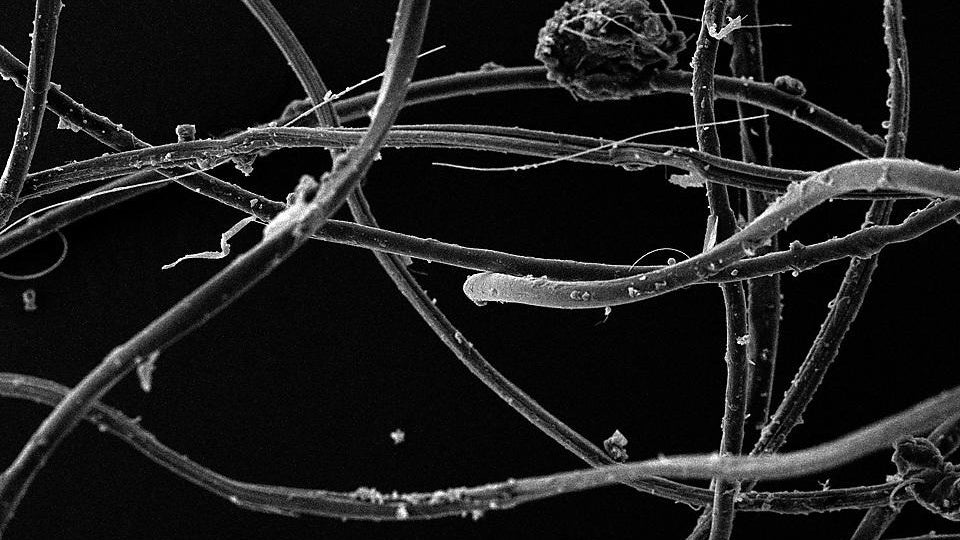
Recycling Microfibres to Power the Clean Battery Future.
At Cleaner Seas Group, we’ve always believed that tackling ocean pollution and advancing clean technology...

Innovative technology to remove microplastics from the environment
Cleaner Seas Group was set up in Cornwall in Autumn 2018 with a mission to rid the environment of microplastic pollution. Micro and nano plastics are omnipresent in our water cycle, the air we breathe and the food we eat. The company are developing technology products that remove micro and nano plastics from the environment and which have global market potential.
Up to 13 million tonnes of plastics – 4% of global plastics production – end up in the oceans every year. Much of the larger items within the oceans derives from packaging but more and more scientists are finding evidence of plastics from the fibres of synthetic clothing. On average 700,000 plastic microfibres go down the drain with every wash of a load of polyesters.
One of the founding members of Cleaner Seas Group, James Sirmon, is a design engineer and he set out to find a solution to the problem of microplastics entering into the seas through washing machine fibres. He has invented a revolutionary washing machine filter which overcomes issues not addressed by other products currently on the market. The product, which is called Indikon-1, uses a cartridge to easily wind on filter paper, helping avoid blocked filters. The cartridge is later returned to the Cleaner Seas Group for recycling. The unique design has now been patented.
Accelerating development through specialist research
In Spring 2019, Cleaner Seas Group approached Marine-i for RD&I support and was directed towards the specialist technology research available through the University of Plymouth. James says: “University of Plymouth have helped us every stage of the way and their research has been invaluable in helping us accelerate the development of our new product.” The first research study took place in May 2019. This analysed the latest published research data on the size of microplastic fibres in order to determine the size of filter required. This study identified the nature and scale of the problem, as well as analysing the various competitors currently operating in the field.
“This research helped us identify the market opportunity” said James “as well as helping define the size parameters to inform our product development. The review determined that a 10 µm pore size filter paper would have effective retention of fibres. “This led us directly to the next stage, which was detailed testing of the filter paper, demonstrating the interaction between the filter paper and domestic washing machines.
The primary focus was to determine what volume of effluent can pass through the filter paper before clogging would affect the performance of the washing machine. Based on the results of the prior review, testing took place using a 10 µm wet strengthened Whatman filter paper.”
Intensive testing at University of Plymouth labs
Through summer 2019, University of Plymouth carried out intensive laboratory testing, investigating the effect of a range of variants in washing scenarios, such as different types of clothes, varying degrees of dirt and different types of washing machine detergents. James says: “This was a really thorough piece of research and University of Plymouth brought a fantastic amount of insight and skill to the work. This study verified our hypothesis that washing powder, rather than the textile fibres themselves, was a major factor leading to clogging of our filters and has enabled us to further refine our design concept.” This work was led by Florence Parker-Jurd, Research Assistant at the International Marine Litter Research Unit, University of Plymouth. Florence says: “This was exhaustive research which covered a wide range of variants. We were able to use our fibre emissions laboratory which is fitted with replicate domestic washing machines to undertake testing under different scenarios to ensure the final design is fit for purpose. It led to clear conclusions which have helped navigate a clear pathway to the next stage for the project.”
Following on from this, Cleaner Seas Group are now set to carry out ‘Proof of Concept’ research on the filter paper. This aims to prove the optimal size for the filter paper as well as confirm how often the cartridge needs to be wound.
“The aim is to collect enough information to be able to complete the design of the washingmachine filter system.” James says. “With all the important factors now defined we will be able to design a compact and efficient micro fibre filter and removal system which will itself use recycled materials for its construction and at the end its life will also be recyclable.
“We are grateful to be able to tap into the in-depth knowledge and experience that the University of Plymouth researchers have in this area as well as take advantage of their washing machine laboratory.” “This third piece of research will get us to the stage where we can approach washing machine manufacturers with confidence and begin to agree sales” says James.
In November 2019, the University of Plymouth was awarded a Queen’s Anniversary Prize for Higher and Further Education for its ground-breaking research and policy impact on microplastics pollution in the oceans. The honour, the highest that can be bestowed upon a higher education institution, recognises the world-leading enquiry by Plymouth researchers, led by Professor Richard Thompson OBE, which has resulted in repeated scientific breakthroughs and influenced national and international legislation.
University of Plymouth Professor Richard Thompson OBE said: ‘’Plastics bring many societal benefits, but those benefits can be achieved without the need to contaminate the environment with plastics and microfibres. My team are keen to work with industry to help identify and optimise potential solutions. That includes our work with the Cleaner Seas Group who are keen to help find ways to reduce microplastic pollution in our seas.”
Plans for commercial roll out
The company have already 3D printed a prototype and will be launching a Kickstarter campaign in the near future. The next stage is to design the physical product and carry out a production unit test through University of Plymouth in Spring 2020, followed by full scale production and commercial roll out in summer 2020. The company’s ambition is to launch a range of products designed to help protect the environment from microplastics. They have already developed a concept for a second product called Beachcomber which can hoover microplastics out of sand and are in early discussions with University of Plymouth about research support for this too.
James says: “Marine-i has been a gamechanger for us. It has unlocked access to the world class research support available through University of Plymouth and this is helping us bring our product to market far more quickly than would otherwise have been possible.”
Get monthly ocean news, offers, events and updates on our mission.
By clicking subscribe, you agree to our Terms and Conditions.
